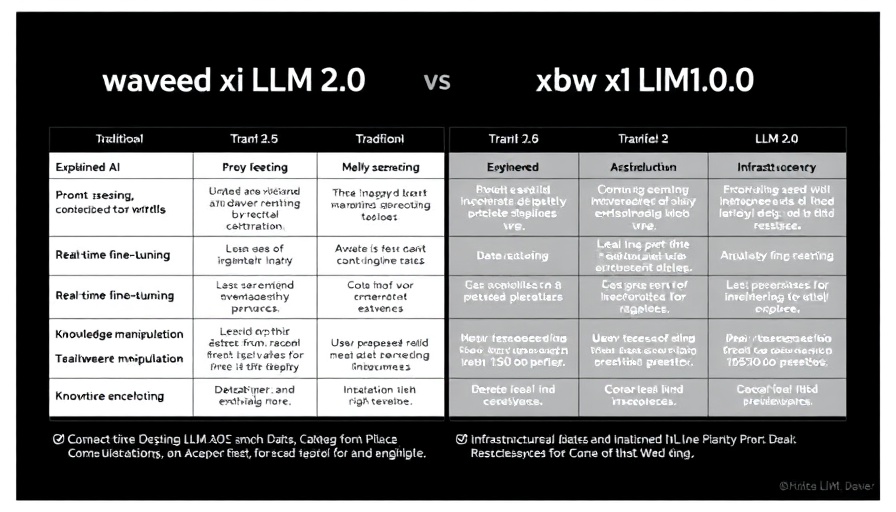
The Dawn of Specialized LLMs: Meeting Enterprise Needs
In a rapidly evolving technological landscape, the focus on Large Language Models (LLMs) is increasingly shifting from general applicability to specialized solutions tailored for enterprises. While standard models like ChatGPT have paved the way, their limitations are becoming more apparent, leading to the emergence of specialized LLMs that cater to specific industry needs.
Understanding the Shortcomings of Standard LLMs
Standard LLMs, designed under frameworks of billions of parameters and deep learning architectures, often struggle with performance issues. Although they were revolutionary at their inception, these models require intensive computation resources—primarily GPUs—and extensive training data. The challenge lies not only in their high operational costs but also in their tendency to produce hallucinations, presenting information that may be inaccurate or misleading.
Furthermore, the re-training process is expensive and time-consuming, making it challenging to keep pace with evolving data landscapes. The reliance on fixed parameters and traditional methods fails to leverage newer techniques that could enhance adaptability and accuracy, particularly within specialized fields such as healthcare or finance.
The Rise of Specialized Models for Industry
Specialized LLMs are designed to address these gaps. Unlike their generic counterparts, these models are customized to analyze and interpret data relevant to a specific domain. For instance, in finance, an LLM can accurately process data related to market trends and regulatory changes without suffering from the cognitive overload that standard models experience.
Moreover, innovation in architecture and training methods—such as the use of Mixtures of Experts—allow for improved outcomes. By employing different sub-models tailored for varied tasks within a domain, enterprises can achieve precision that generic models often lack.
Empowering Enterprises: Usability and Security
Security remains a critical concern in digital environments. Specialized LLMs, with their targeted outputs, can improve data security by mitigating the risk of producing hallucinations. Enhanced user interfaces allowing simpler prompts and customized functionalities enable users to engage more effectively with the technology, tailoring outputs to their specific needs.
As businesses increasingly rely on AI-driven solutions, understanding and adapting to the functionalities of these specialized LLMs becomes imperative. The ability to fine-tune these models not only drives user satisfaction but also promotes greater integration across platforms.
Looking Forward: A New Era of AI
The future of LLMs lies in their capacity to adapt and deliver performance enhancements tailored to enterprise requirements. As companies recognize the limitations of standard models, they must explore the benefits of specialized LLMs for immediate applications that cater to their unique datasets and operational challenges.
Utilizing these advancements will empower organizations to make data-driven decisions with more confidence, ensuring that the deployment of AI technologies enhances their operational capabilities.
 Add Row
Add Row  Add
Add 




Write A Comment